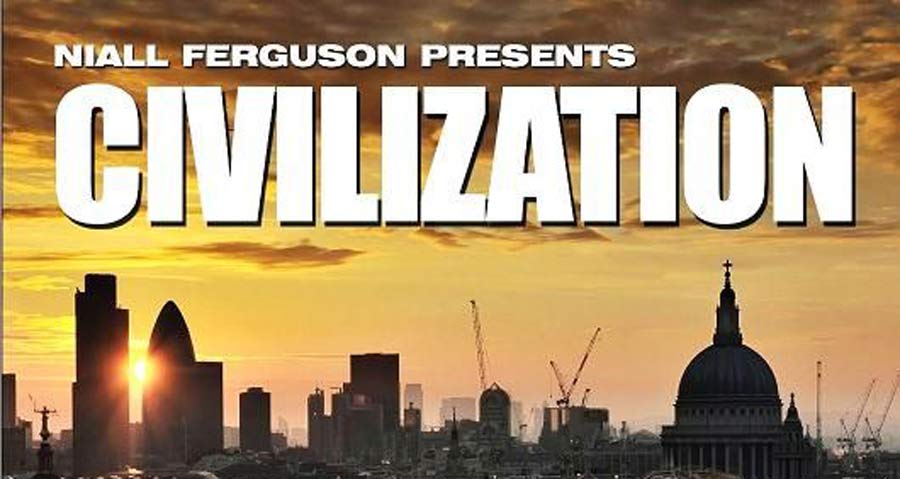Civilization: Is the West History episode 2: In 1683 the Ottoman army laid siege to Vienna, the capital of Europe’s most powerful empire. Domination of East over West was an alarmingly plausible scenario. But Islam was defeated: not so much by firepower as by science. Niall Ferguson asks why the Islamic world didn’t participate in the Scientific Revolution and the Enlightenment, and if the West is still capable of maintaining its scientific lead, at a time when educational attainment in science subjects is declining.
Niall Ferguson asks why it was that Western civilization, from inauspicious roots in the 15th century, came to dominate the rest of the world; and if the West is about to be overtaken by the rest. Ferguson reveals the ‘killer apps’ of the West’s success – competition, science, the property owning democracy, modern medicine, the consumer society and the Protestant work ethic – the real explanation of how, for five centuries, a clear minority of mankind managed to secure the lion’s share of the earth’s resources.
Ferguson’s conclusions are surprising and provocative. He reveals that while the killer apps have finally been downloaded by the rest, in the process Western civilization has lost faith in itself. And it is that loss of self-belief that poses the biggest threat to its continued predominance.
Civilization: Is the West History episode 2
Western culture, also known as Western civilization, Occidental culture, or Western society, is the heritage of social norms, ethical values, traditional customs, belief systems, political systems, artifacts and technologies of the Western world. Western values become the symbols of dominant mentality for the culture of Western societies that transcended through power and authority. The term applies beyond Europe to countries and cultures whose histories are strongly connected to Europe by immigration, colonization or influence. For example, Western culture includes countries in the Americas and Oceania. Western culture is most strongly influenced by Greek philosophy, Roman law, and Christian culture.
The expansion of Greek culture into the Hellenistic world of the eastern Mediterranean led to a synthesis between Greek and Near-Eastern cultures, and major advances in literature, engineering, and science, and provided the culture for the expansion of early Christianity and the Greek New Testament. This period overlapped with and was followed by Rome, which made key contributions in law, government, engineering and political organization.
